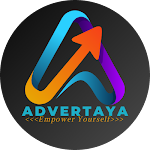Welcome to the fascinating world of blockchain technology! Today, we're going to explore this magical innovation that's changing the way businesses work. Don't worry if technology discussions usually makes your head spin – we're going to keep it simple and easy to understand.
Blockchain technology is a financial technology and social networking system that is gaining momentum across different sectors such as healthcare, economics, digital security, and more. Possessing expertise in this area can elevate your chances of securing your ideal position or profession. In this blog post, we are going to explore the competencies and insights you'll gain from this free course on Blockchain technology.
What You Are Going to Learn
- What distributed ledger systems are, what blockchain technology is, and how businesses use them.
- Basic principles and business view of blockchain technology: You will understand the concept of blockchain network and how it can be used in variety of industries, including finance, healthcare, supply chain management, and more.
- The transfer of assets within a blockchain network: You will discover how to transfer assets on a blockchain network, including cryptocurrency, and how to verify and log transactions.
- You will gain knowledge about the Hyperledger project of the Linux Foundation, which is promoting blockchain optimization in a variety of industries. Additionally, you will study permissioned blockchain systems that are ready for enterprises.
- You'll discover how to make bitcoin wallets, Chain SDKs, fabricodes, smart contract creation, transaction confirmation, and more.
The curriculum explores practical applications in finance, healthcare, supply chain, and more. Participants gain hands-on experience through real-world case studies and projects, fostering a comprehensive understanding of blockchain's transformative potential across various industries. The course also addresses security considerations, regulatory aspects, and emerging trends in the dynamic blockchain landscape.
By completing the course, you gain a profound understanding of blockchain architecture, smart contracts, and tokenization. Furthermore, the course covers security measures, regulatory nuances, and emerging trends, making it a well-rounded educational journey.
Overall, the benefits include a robust knowledge base, practical skills, and a strategic perspective on leveraging blockchain technology in diverse professional contexts.
What is Blockchain Technology?
Blockchain technology is a distributed ledger system that operates on a decentralized network of computers, securely recording and verifying transactions. It is based on a series of blocks, each of which has a timestamp, transaction data, and a cryptographic hash of the block before it. Transparency and immutability are guaranteed by this structure. Consensus mechanisms validate transactions, negating the need for centralized control. Blockchain is used in many different industries as a transparent and safe way to manage digital assets, carry out smart contracts, and build transaction trust.
Key Components:
- Blocks: Units of data used to hold transactional data.
- Hash: A chain is formed by the cryptographic hash functions that connect each block to the one before it. By doing this, data integrity is guaranteed and security is strengthened.
How Blockchain Works:
1. Transaction Initiation: After a request is made by a participant, it is announced to the entire network.
2. Validation: Nodes in the network validate the transaction's legitimacy using consensus mechanisms.
Consensus General Agreement:
1. Proof-of-Work (PoW): To validate transactions and add blocks to the chain, miners must solve challenging mathematical puzzles. Therefore, miners are rewarded with cryptocurrencies for confirming crypto transactions and displaying the total marketcap on the blockchain's public network.
2. Proof-of-Stake (PoS): The quantity of cryptocurrency that validators are willing to "stake" as collateral determines their selection to mine the blocks. Miners are rewarded with cryptocurrencies for confirming crypto transactions and displaying the total marketcap on the blockchain's public network.
Applications:
1. Cryptocurrencies: Blockchain's most well-known application is in cryptocurrencies like Bitcoin and Ethereum.
2. Smart Contracts: Self-executing contracts with coded terms and conditions facilitate trustless and automated agreements.
3. Supply Chain Management: Enables transparency and traceability in supply chains, reducing fraud and errors.
4. Healthcare: Securely manages patient data, ensuring privacy and integrity.
5. Finance: Facilitates faster and more secure cross-border transactions and settlements.
Problems:
1. Scalability: Blockchain systems may have trouble processing a high volume of transactions.
2. Regulatory Concerns: The laws governing cryptocurrencies and blockchain technology are still developing.
3. Energy Consumption: Bitcoin's proof-of-work consensus methods have the potential to use a lot of energy.
Gaining an understanding of these elements gives you a basic understanding of blockchain technology and the wide range of industries it can be applied to.
Distributed Ledgers: The Secret Sauce of Blockchain
Now, let's talk about distributed ledgers. Picture it like a team of friends keeping the same copy of a notebook. Every friend has a copy, and they all agree on what's written inside the notebook. This teamwork is what makes blockchain powerful – instead of one central keeper, everyone has a copy, and it's much harder for anyone to cheat.
Business with Blockchain: Foundational Principles and Use Cases
Blockchain isn't just for tech enthusiasts; it's a tool that businesses use to make things smoother and safer. It's like a superhero cape for data! Companies use blockchain to keep records secure, ensure everyone is playing fair, and even for things like tracking where your food comes from.
Transferring Assets on a Blockchain Network
Ever wondered how data move around on the internet without getting lost? We'll discover how assets, like virtual currencies move smoothly on a blockchain network.
Smart Contracts, Bitcoin Wallets, and More: Your Tech Toolkit
Now, the fun part! We'll learn how to design smart contracts (they're like digital agreements), create bitcoin wallets (a bit like online piggy banks), and understand fabricode and Chain SDKs. These are like the tools in our digital ecosystem to make amazing things happen in the blockchain world.
Learn more about blockchain technology and get your professional certificate by clicking on the learn more👇🏼button.

